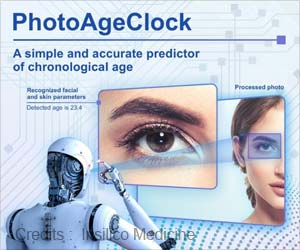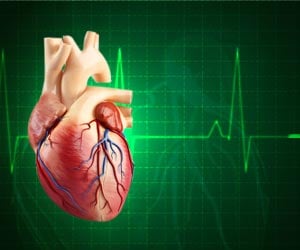Artificial Intelligence (AI) is overtaking humans. A new study shows that AI can predict those individuals who are at risk of heart attack and death. This can help doctors to personalize treatment, which could lead to better outcomes for patients.

TOP INSIGHT
Artificial Intelligence (AI) is overtaking humans. AI can now predict those individuals who are at risk of heart attack and death. AI can also help doctors to personalize treatment, which can lead to better outcomes for patients.
Machine learning, the modern bedrock of artificial intelligence (AI), is used every day. Google's search engine, face recognition on smartphones, self-driving cars, Netflix and Spotify recommendation systems all use machine learning algorithms to adapt to the individual user.
Study author Dr Luis Eduardo Juarez-Orozco, of the Turku PET Centre, Finland, said: "These advances are far beyond what has been done in medicine, where we need to be cautious about how we evaluate risk and outcomes. We have the data but we are not using it to its full potential yet."
Doctors use risk scores to make treatment decisions. But these scores are based on just a handful of variables and often have modest accuracy in individual patients. Through repetition and adjustment, machine learning can exploit large amounts of data and identify complex patterns that may not be evident to humans.
Dr Juarez-Orozco explained: "Humans have a very hard time thinking further than three dimensions (a cube) or four dimensions (a cube through time). The moment we jump into the fifth dimension we're lost. Our study shows that very high dimensional patterns are more useful than single dimensional patterns to predict outcomes in individuals and for that we need machine learning."
During an average six-year follow-up there were 24 heart attacks and 49 deaths from any cause. The 85 variables were entered into a machine learning algorithm called LogitBoost, which analysed them over and over again until it found the best structure to predict who had a heart attack or died.
The predictive performance using the ten clinical variables alone (similar to current clinical practice) was modest, with an area under the curve (AUC) of 0.65 (where 1.0 is a perfect test and 0.5 is a random result). When PET data were added, AUC increased to 0.69. The predictive performance increased significantly (p=0.005) when CCTA data were added to clinical and PET data, giving an AUC 0.82 and more than 90% accuracy.
Dr Juarez-Orozco said: "Doctors already collect a lot of information about patients - for example those with chest pain. We found that machine learning can integrate these data and accurately predict individual risk. This should allow us to personalize treatment and ultimately lead to better outcomes for patients." That's the main message of a study presented at ICNC 2019.
Source-Eurekalert
 MEDINDIA
MEDINDIA




 Email
Email










